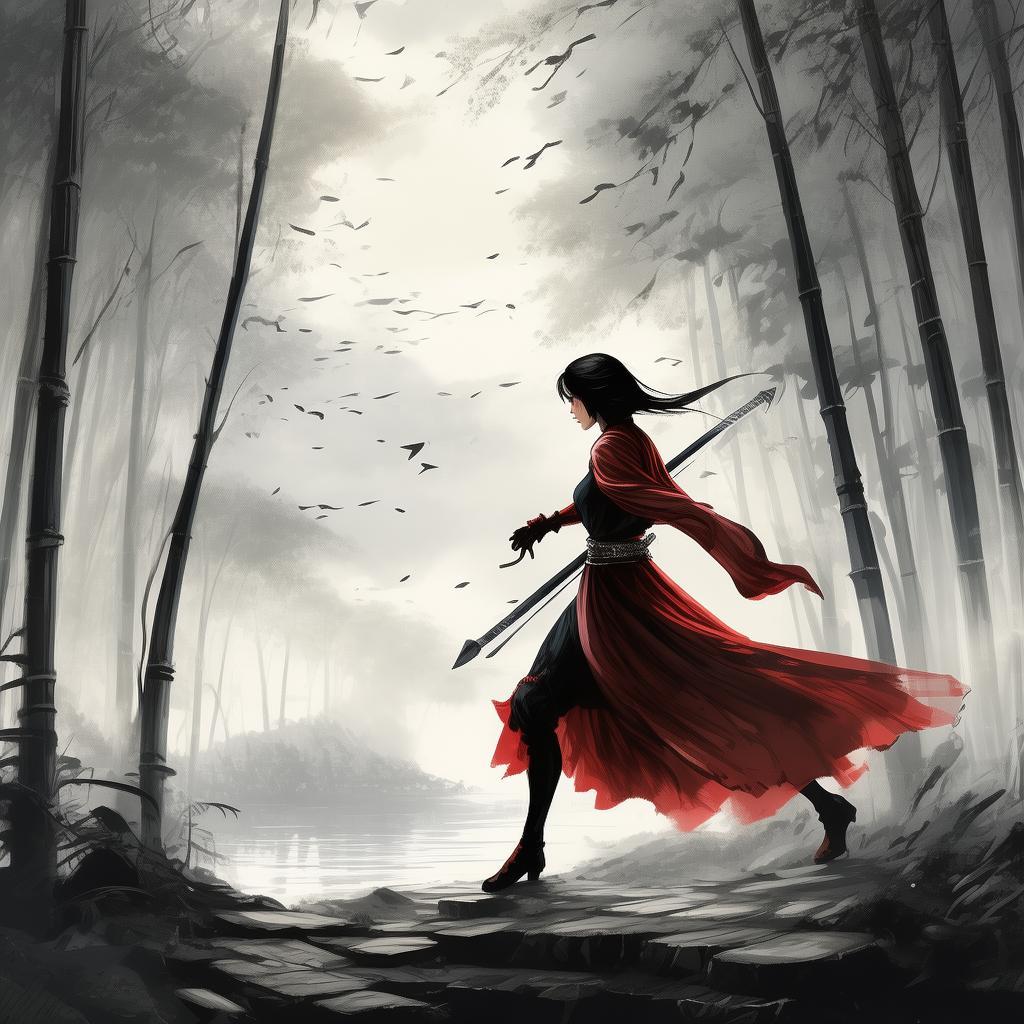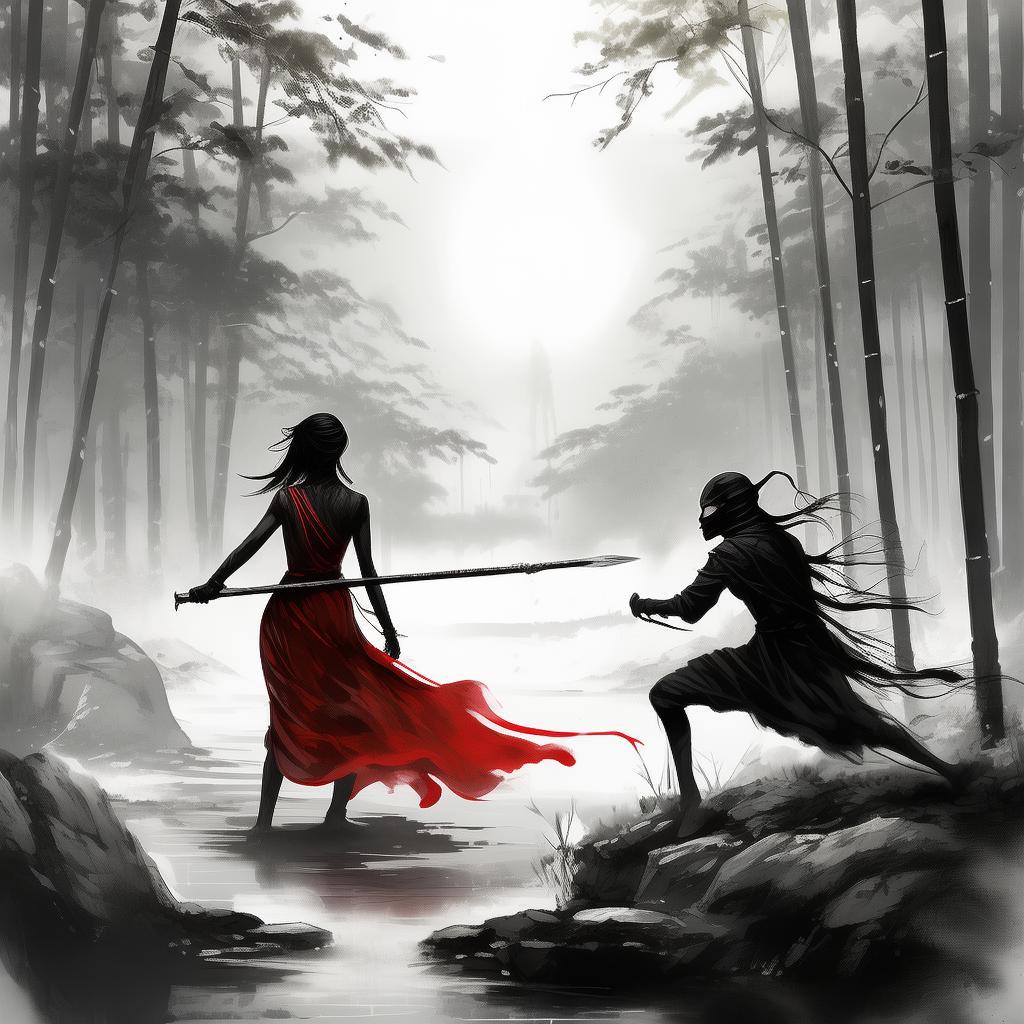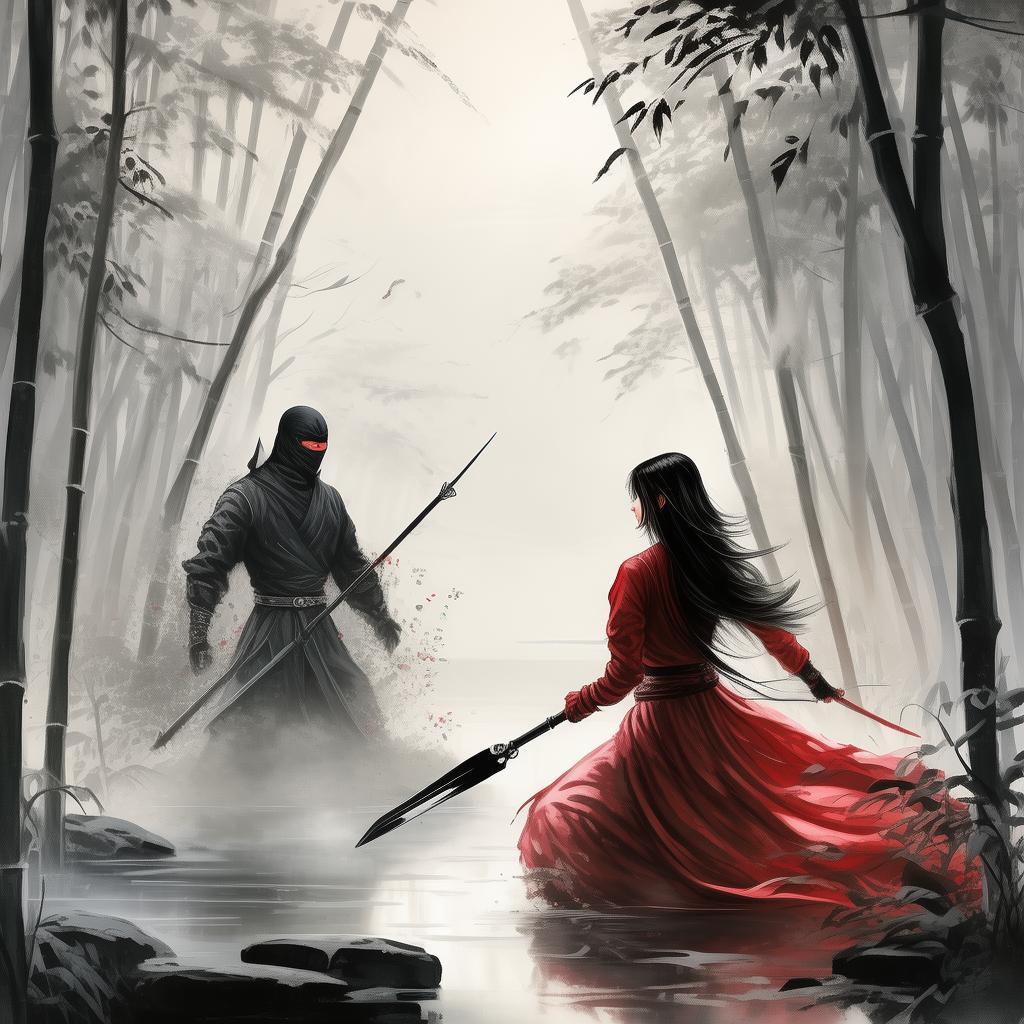Samurai's Dilemma: A Quest for Redemption
The moon hung low in the night sky, casting a pale glow over the silent village. In the heart of the samurai's quarters, the air was thick with anticipation and tension. The samurai, known as Kaito, had spent years honing his skills in the martial arts, a path he had chosen to honor his family's legacy. But now, a riddle had emerged that would test not only his martial prowess but also the very essence of his character.
The riddle was simple yet profound: "Who am I? And what is my destiny?" It had been whispered among the villagers, a cryptic message that seemed to echo from the shadows. Kaito, with his keen sense of justice and his unwavering commitment to the samurai code, felt an inexplicable pull towards the mystery.
He had been a guardian of the village, a protector of the innocent, and a symbol of honor. But as he delved deeper into the riddle, he discovered that his own past was shrouded in mystery, a past that might hold the key to the enigmatic message.

Kaito's quest began with a visit to the village elder, a wise man whose eyes held the wisdom of centuries. The elder listened intently as Kaito recounted his journey and his encounter with the riddle.
"Your destiny, Kaito, is intertwined with the fate of the samurai's riddle," the elder said, his voice tinged with a hint of reverence. "It is not merely a question of identity, but a quest for redemption."
As Kaito pondered the elder's words, he couldn't shake the feeling that his past was not his own. He had been raised by the samurai clan, but there was something missing—a sense of belonging, a connection to his roots.
Determined to uncover the truth, Kaito set out on a journey that would take him from the serene mountains to the bustling cities of the realm. Along the way, he encountered various martial artists, each with their own tale of honor, betrayal, and the quest for identity.
One such encounter was with a woman named Yumi, a skilled swordsman who had been banished from her village for her unconventional beliefs. Yumi, with her fiery spirit and sharp wit, became an unexpected ally in Kaito's quest. Together, they discovered that the riddle was not just about Kaito's identity, but about the fate of the samurai code itself.
As they ventured deeper into their quest, they uncovered a web of deceit and betrayal that had been woven into the very fabric of the samurai society. They learned that the riddle was a test, not just of Kaito's martial prowess, but of his ability to confront the shadows of his past and choose the path of honor.
One night, as they rested in a remote inn, Kaito had a revelation. The riddle was not just about his identity; it was about the legacy he was destined to protect. He realized that the true samurai was not defined by their skill or their rank, but by their character and their unwavering commitment to the principles of honor and justice.
With this newfound clarity, Kaito and Yumi confronted the mastermind behind the riddle—a former samurai who had turned his back on the code. In a climactic battle that tested their martial arts to the limit, they managed to defeat the traitor and restore balance to the samurai society.
The victory was bittersweet, for in the process, Kaito had uncovered the truth about his past. He learned that he was adopted by the samurai clan as a child, and that his true identity was connected to a long-lost family legacy that had been shrouded in mystery.
With the riddle solved and the truth revealed, Kaito returned to the village as a changed man. He no longer sought to prove his worth through martial prowess, but to live a life of honor and service to those he loved and protected.
The village elder watched him with a knowing smile as Kaito stood before the villagers, ready to assume his role as their guardian. "You have found your destiny, Kaito," the elder said softly. "To be a samurai is not to be defined by rank or skill, but by the heart and the spirit."
And so, Kaito began his journey as a true samurai, a guardian of the village, a protector of the innocent, and a symbol of the enduring power of honor and justice.
✨ Original Statement ✨
All articles published on this website (including but not limited to text, images, videos, and other content) are original or authorized for reposting and are protected by relevant laws. Without the explicit written permission of this website, no individual or organization may copy, modify, repost, or use the content for commercial purposes.
If you need to quote or cooperate, please contact this site for authorization. We reserve the right to pursue legal responsibility for any unauthorized use.
Hereby declared.









